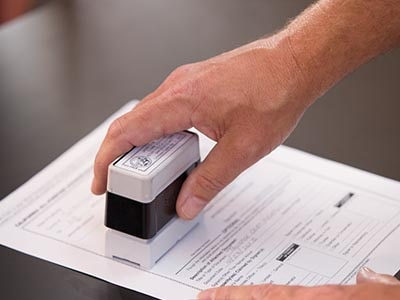Skilled Conveyancer: Promoting Smooth Realty Transactions
Skilled Conveyancer: Promoting Smooth Realty Transactions
Blog Article
Debunking Notarial Work: Simplifying the Function and Relevance of Notaries
Their role, typically shrouded in mystery for many, carries substantial weight in guaranteeing the credibility and integrity of essential files. By unraveling the complexities losing and surrounding notarial practices light on the significance of their acts, a clearer understanding emerges of the essential function notaries play in supporting the textile of lawful and contractual contracts.
The Background of Notarial Job
How did notarial job progress with time to end up being an integral part of legal and company purchases? The history of notarial work go back to old people, where scribes played a vital function in videotaping important info and confirming papers. As societies advanced, the requirement for a much more formalized system to ensure the validity of contracts occurred. This brought about the growth of notaries, individuals assigned by the state to serve as neutral witnesses in legal matters.
Throughout the Center Ages, notaries acquired importance in Europe, with their features increasing to consist of drafting legal records, certifying signatures, and protecting documents. The surge of international trade better emphasized the significance of notarial work in confirming contracts and agreements across borders.
In the contemporary age, notaries remain to play a vital role in legal and company deals by confirming identifications, verifying the credibility of records, and preventing fraudulence. Their duty in licensing the legitimacy of arrangements includes a layer of safety and depend the ever-evolving landscape of business and legislation.

Obligations and Obligations of Notaries
Notaries play a crucial role in confirming the authenticity of papers and the identification of notaries. One of their key duties is to witness the signing of crucial papers, such as agreements, wills, and deeds, to ensure that all celebrations are getting in right into agreements intentionally and voluntarily.
They accredit duplicates of initial papers, supplying assurance to institutions that the copies are true reproductions of the originals. On the whole, the tasks and obligations of notaries are important in securing the integrity and legality of different files and purchases - Deceased Estate.
Notarial Certificates and Signatures
Exemplifying careful focus to detail, notarial certificates and signatures act as important components in validating the credibility of lawful papers. Notarial certificates usually include essential information such as the day of registration, the names of the notaries, a description of the record, and the notary's main seal. These certifications supply a clear record of the notarial act, guaranteeing that the paper can be quickly determined and mapped back to the notary that managed the process.
Signatures play a critical function in notarial job, as they indicate the contract and permission of the parties involved. Notaries meticulously witness the finalizing of records to validate the identification of the signatures and confirm that they are authorizing of their very own complimentary will. By affixing their main seal and trademark to the document, notaries accredit that the required procedures have actually been adhered to and that the file is legitimate and enforceable.
Essentially, notarial certificates and trademarks are the characteristic of credibility in legal transactions, supplying my review here guarantee to all parties entailed that the files are legitimate and binding.
Importance of Notarial Acts

Notarization Process Described
Describing the registration procedure supplies clearness on the necessary actions associated with verifying legal files. The notarization procedure typically starts with the specific offering the paper to a notary public. The notary then confirms the link signer's identification via appropriate identification methods. Once the identification is validated, the notary makes certain that the specific authorizing the file does so willingly and with no threat.

Final Thought

Notarial certificates generally consist of important information such as the date of registration, the names of the signatories, a summary of the paper, and the notary's main seal. These certifications provide a clear record of the notarial act, making sure that the record can be conveniently identified and traced back to the notary who supervised the procedure.
By fastening their main seal and trademark to the document, notaries certify that read this post here the necessary procedures have been followed and that the file is legitimate and enforceable.
By validating the identification of the signatures, confirming their willingness to enter into the agreement, and certifying the day and location of the signing, notaries play a critical duty in promoting the validity of lawful records.After the document is signed, the notary will certainly affix their official seal or stamp onto the paper.
Report this page